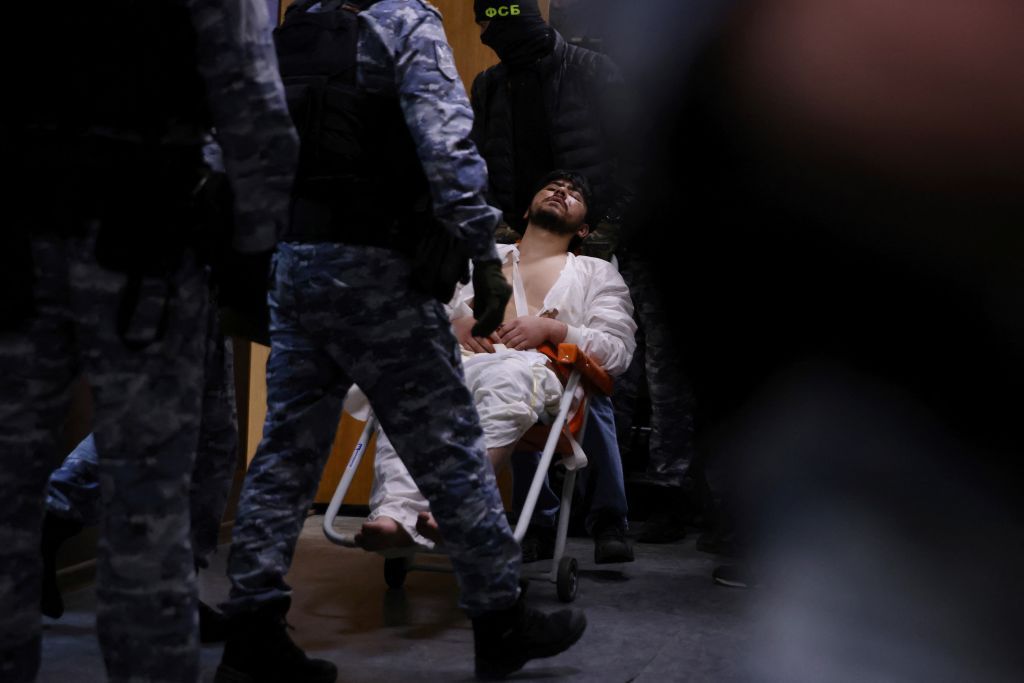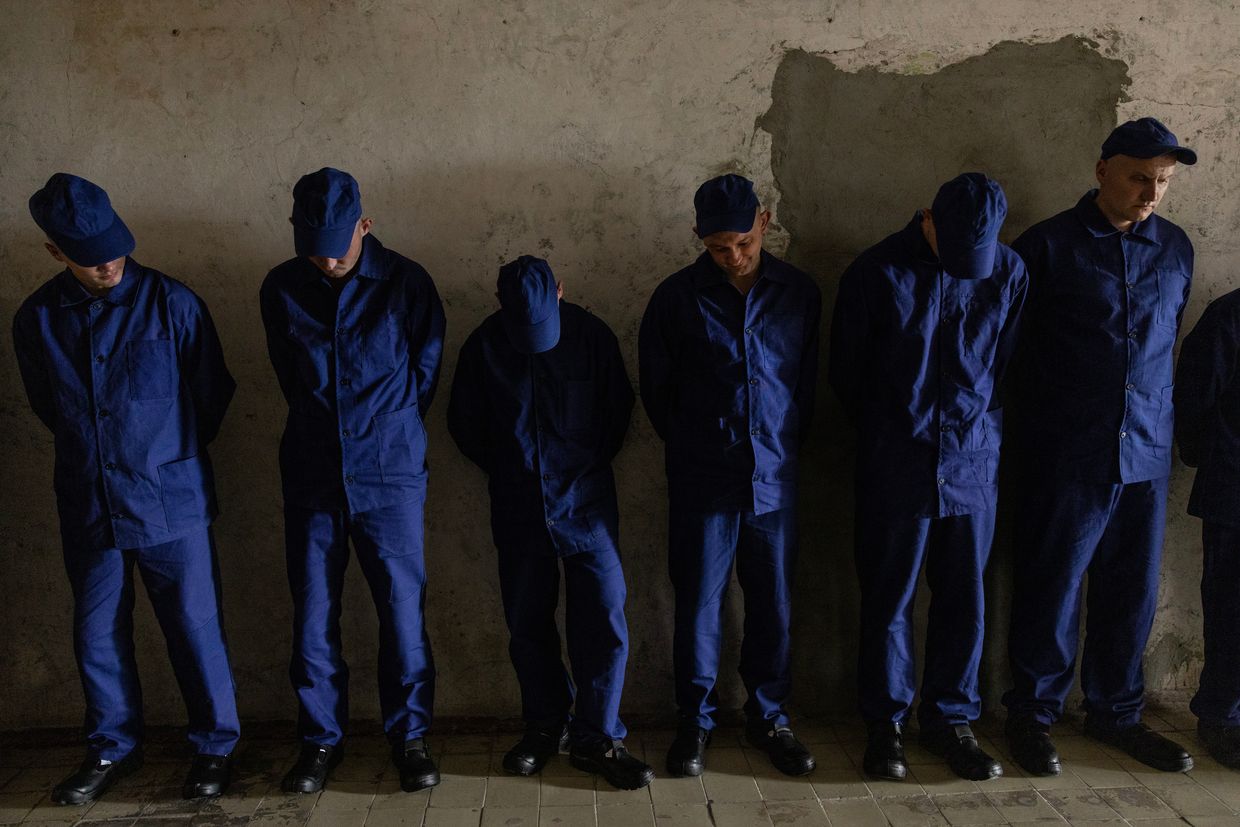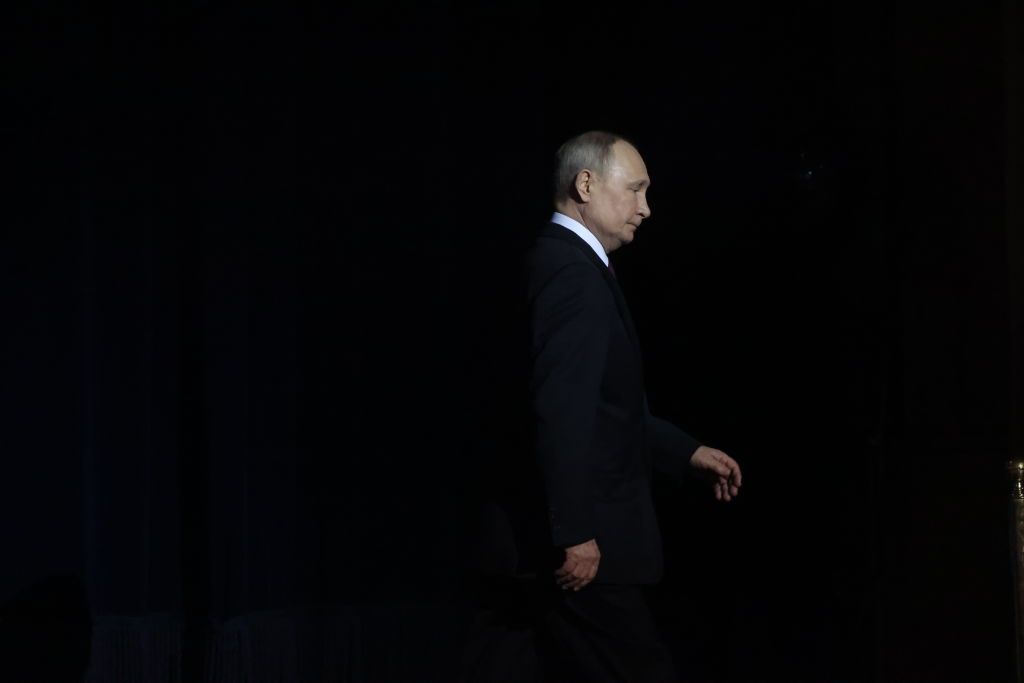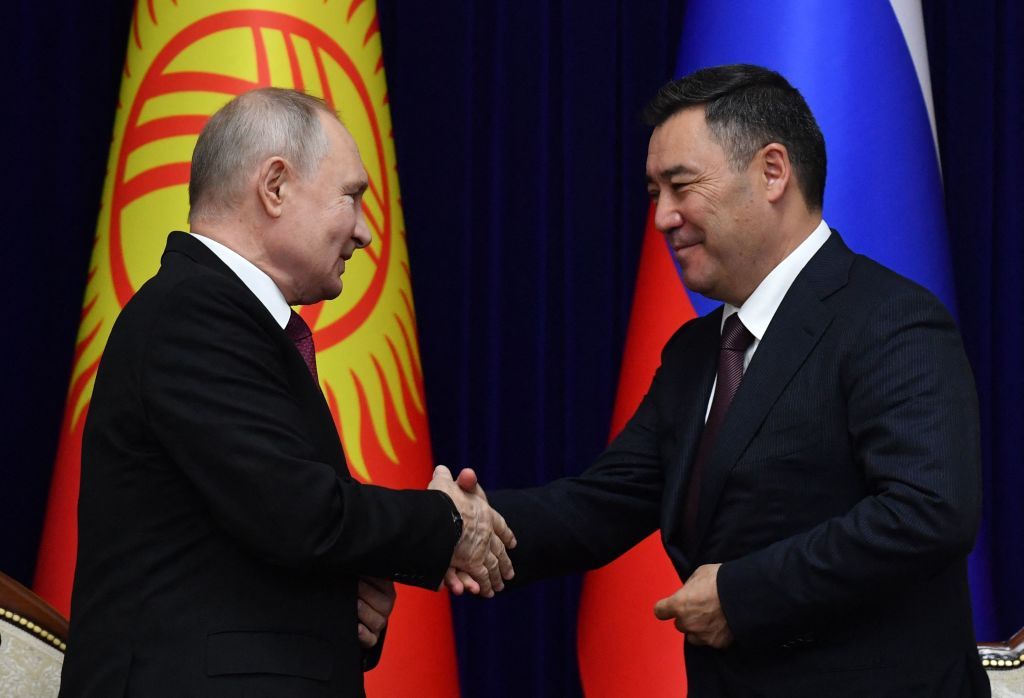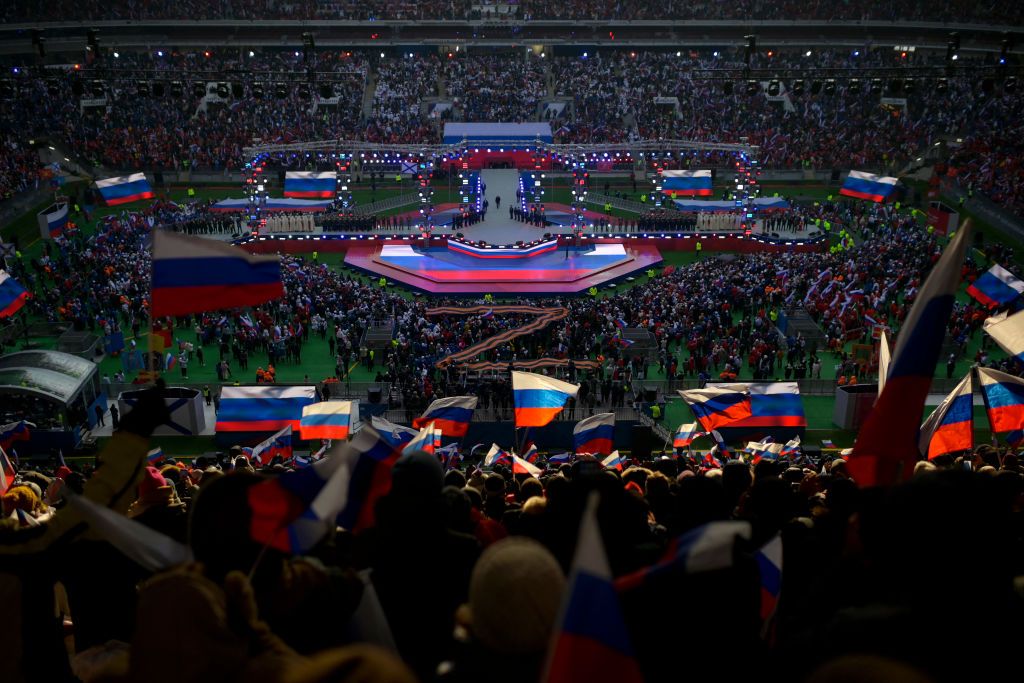Ethnic tensions on the rise in Russia, as government attempts to divert attention from war

Supporters of Russian President Vladimir Putin hold flags and cheer during a concert marking the anniversary of the annexation of Crimea, on March 18, 2022 in Moscow, Russia. Thousands of people gathered at Luznkiki Stadium to support President Putin, the annexation of Crimea and the conflict in Ukraine. (Contributor / Getty Images)
Editor's Note: The people who spoke with the author of this article requested that they be referred to only by their first names since they remain in Russia and are scared to share sensetive information with the media fearing retribution by the people or the state.
Adam, a Tajik migrant, navigates daily life in Moscow amidst growing scrutiny and suspicion: since the Crocus City Hall attack, he's been taken to the police station every other day.
He also faced discrimination from common people:
"I was followed and then asked to leave a grocery store because people were 'uncomfortable' shopping around me. It is mad."
His experiences reflect a broader issue—racial discrimination is intensifying, fueled by state policies and public sentiment in the wake of the attack.
Human Rights Watch's 2024 report paints a bleak picture of human rights in Russia, emphasizing the suppression of civil liberties and targeting of migrants and ethnic minorities, contributing to a climate of intolerance.

Following the Moscow mass shooting, in which 144 people were killed, allegedly perpetrated by followers of the Islamic State from Central Asian Tajikistan, Russia's national minorities have witnessed a growing number of attacks and hate.
Anna Gomboeva, PhD candidate at the University of Virginia specializing in Slavic and East European Studies claims that public xenophobia is beneficial for the current regime.
Toughened immigration policies, police violence, and normalization of hateful rhetoric serve as a quick and easy pressure release from the growing war fatigue and possible public discontent.


Instead of acknowledging and addressing real problems such as geographic inequality, poverty, and the expanding wage gap, xenophobic aggression shifts the blame away from institutions of power and scapegoats individual victims of structural violence instead, Gomboeva said.
'Non-Russians' not welcomed
Following the attack, stories of racial bias against minority groups have emerged, particularly affecting the regions with a predominantly ethnic Russian population.
Instances of a Muslim couple from the Caucasus or Central Asia being denied hotel entry in Moscow and screenshots circulating in social media showing requests to cancel services if the provider is Tajik illustrate the deepening divide.
Maryam, a Muslim Chechen woman in Moscow, shares a poignant testimony of the alienation and hostility she faces, highlighting the extreme levels of xenophobia that have surged, making even the act of sharing her story a risk.
She claims it is almost impossible to use public transport since the attack: people would move away from her in the metro, stare at her as if she did something wrong, and even verbally offend her and scream that she is a terrorist.

"Russia has never been a non-xenophobic country, but these days it's been extreme, and I don't even think I can do anything," Maryam said.
Alexey Kim, a 33-year-old native of Buryatia who is now a refugee in the U.S., states that extensive racism and xenophobia in Russia are some of the main reasons why he decided to claim asylum elsewhere in the first place. He moved from Buryatia to Moscow and worked in a reputable IT company in the capital. However, back in 2018, when he was taking a walk with his friend, he found himself surrounded by skinheads.
"At first I didn't even realize what was going on, they've been shouting towards me, that I should go back to my own country, they mentioned China as well for some reason, called me narrow-eyed," Kim said.
"At some point, that group of about five-six men surrounded me, and I realized that someone hit me in the face. Then I fell, and they started beating me up. I even heard that one of them directed the others to try to hit me in the face," he added.
"Some of these guys held my friend and asked her: 'Why would you want to help him? He is not one of us!'"
According to Kim, this incident happened next to a busy metro station, and no one offered any help. Moreover, when Kim went to the police, he was accused of "not being able to fight" and "walking around in an area you do not know."
Ultimately, Kim started working remotely, fearing the situation would repeat.
He soon decided to leave Russia.
"I was really tired of the fact that my documents would be checked every other day on public transport. They would follow me around in the shops, thinking I was here to steal something, asking me where I got the passport, how I knew Russian so well, etc."
Diverting attention
The official response to the Crocus City Hall attack, characterized by deportations and raids, coupled with Putin's toughened immigration rhetoric, reflects a broader, increasingly hostile state policy toward foreigners.
Legislation aimed at enhancing immigration control underscores the growing challenges faced by those seeking refuge or opportunity in Russia.

In a country where all political expression is heavily controlled and limited, participation in racist and xenophobic aggression creates a false sense of political participation and agency.
According to Gomboeva, the regime continues to safely do whatever it pleases, once again successfully diverting the public attention away from the real structural violence that it perpetuates both at home and abroad.
The UN Special Rapporteur on Human Rights in Russia highlights a significant deterioration in human rights, with arbitrary arrests and suppression of dissent creating conditions ripe for xenophobia. Amnesty International connects global issues of repression and discrimination, noting how these trends manifest in Russia to create a hostile atmosphere for minorities and migrants.

In a country with a substantially diverse minority population consisting of more than 195 ethnicities that are indigenous, with six of these groups having a population of more than a million population, acute xenophobia by the dominant Russian ethnic group is omnipresent.
Russia has seen waves of hate crimes and discrimination against migrants and those who are deemed "non-Russian" following terrorist attacks.
Additionally, according to the UN World Migration Report Russia holds the fourth largest migration population in the world, which equals more than 12 million people as of 2022.
Checks, arrests, deportations
According to Agents.Media, since March 22, the date when the terrorist attack happened, over 160 criminal and 4,400 administrative cases, mainly related to immigration laws, have been opened as a result of police raids on immigrants.
At least 1,759 decisions to deport foreigners have been made, and 346 migrants were issued draft notices during these operations, with some taken directly to military registration offices. Most deportations occurred in Saint Petersburg (418), Moscow (403), and other regions, including Chelyabinsk and Samara. The Tajikistan ministry of labor also states that there has been an increase in Tajik immigrants leaving Russia after the attack.
According to Valentina Chupik, director of the Tong Jahoni organization, which offers legal help to migrants, on March 24 and 25, there were over 1,700 complaints per day, more than a thousand of which related to illegal detentions. Typically, there are 150-170 complaints daily, about 20 concerning unlawful arrests.
Property owners like Varvara, who has rented her Novosibirsk apartment to an Uzbek family for years without issue, now face backlash from xenophobic neighbors threatening police action against "non-Russian" tenants.

"I told my neighbors, you can call the police; lending a flat to people of different nationalities is not illegal. I don't know how these people's logic even works," she said.
These narratives, from Adam's daily struggles to Varvara's confrontation with xenophobic neighbors and Maryam's experience of isolation and fear, offer a window into the human cost of the rising tide of racism and xenophobia in Russia.
They underscore a complex interplay of terrorism, migration, and racial tensions, posing significant challenges to the fabric of Russian society in the aftermath of tragedy.

